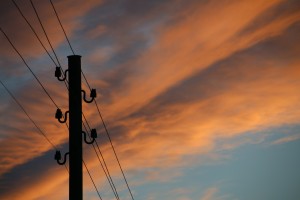By Paige Topper
On November 13, 2015, in the civil case of CoreTel Virginia, LLC v. Verizon Virginia, LLC, a published opinion, the Fourth Circuit affirmed the District Court’s decision to grant damages for use of telecommunications facilities and late-payment fees.
The Telecommunications Act of 1996
The Telecommunications Act requires incumbent local exchange carriers, like Defendants, Verizon Virginia and Verizon South (collectively “Verizon”), to allow competitive local exchange carriers, like Plaintiff, CoreTel, to connect with users over the incumbent’s network. This arrangement is executed through private agreements that determine the rates and terms under which the companies’ networks will be interconnected. Here, the two interconnection agreements (the “ICAs”) at issue were between CoreTel and Verizon Virginia and between CoreTel and Verizon South.
CoreTel I: Procedural History
The Fourth Circuit first encountered these parties in a dispute over what rates CoreTel had to pay to use Verizon’s facilities. CoreTel had ceased paying for the use of Verizon facilities since the parties could not agree as to the proper rate. Subsequently, Verizon filed suit bringing both a declaratory relief claim (to enforce Verizon’s tariffs as the rate) and a claim for damages. The Fourth Circuit found that Verizon should have billed CoreTel for facilities at TELRIC rate (a cost-based pricing method established by the Federal Communications Commission) rather than the tariff rates of Verizon. As a result, CoreTel was entitled to summary judgment on that first claim. However, the Fourth Circuit did not resolve Verizon’s claim for damages associated with CoreTel’s breach of the ICAs for failure to pay.
On remand, the district court heard evidence from Verizon regarding CoreTel’s debts for the both the Verizon Virginia and Verizon South facilities. Verizon further argued that it was entitled to late fees. The district court entered judgment in favor of Verizon for the full amount of damages plus the late fees.
Mandate in CoreTel I Did Not Preclude the District Court’s Finding of Damages
The Fourth Circuit found that CoreTel misconstrued the mandate rule, which prohibits lower courts from considering questions that a mandate of a higher court laid to rest. The Fourth Circuit emphasized that the only matter its mandate in CoreTel I laid to rest was that TELRIC rates should apply. While the Fourth Circuit held in favor of CoreTel on Verizon’s claim for declaratory relief, the Court did not resolve Verizon’s claim for damages related to CoreTel’s breach of the ICAs. Therefore, the decision in CoreTel I did not preclude the district court’s findings on damages.
Fourth Circuit Found District Court Did Not Err in Calculating the Outstanding Facilities Charges
Under the ICAs, parties establish “interconnection points,” at agreed-upon locations. When a CoreTel customer calls a Verizon customer, CoreTel is responsible for delivering that call to the relevant Verizon Internet Protocol (IP). In this case, CoreTel completed the delivery of the calls by purchasing access to Verizon’s facilities at the TELRIC rates. CoreTel had to pay TELRIC-based facilities charges for any Verizon facilities it used to transport the calls. CoreTel completely failed to make these payments.
CoreTel argued six reasons for why the district court erred in granting the specified amount of damages. The Fourth Circuit found each argument unpersuasive. The majority of the Fourth Circuit’s discussion revolves around the language of the ICAs and what the parties contractually agreed on. For instance, CoreTel argued that it should not owe facility charges to Verizon South because all its traffic entered the Verizon network through Verizon Virginia facilities. The Fourth Circuit concluded that the ICAs made clear that CoreTel must pay Verizon Virginia for the use of Verizon Virginia facilities and Verizon South for the use of Verizon South facilities, regardless of where CoreTel traffic enters the Verizon network.
District Court Did Not Err in Awarding Late Fees
CoreTel further challenged the district court’s award of late fees to Verizon on three claims. Again the Fourth Circuit found each argument unpersuasive. In disputing CoreTel’s arguments, the Fourth Circuit determined that, despite the fact that Verizon had never issued CoreTel formal bills at the proper TELRIC rate, CoreTel still owes late fees because CoreTel did not even pay the undisputed amount (the TELRIC rate). Additionally, the Fourth Circuit concluded that although Virginia law requires late fees to be limited to 5% per year, when a state utilities commission approves an ICA, its provisions are not subject to state law claims. Here, Virginia’s state utilities commission approved both ICAs and thus CoreTel could not claim a violation of Virginia law.
Fourth Circuit Affirmed
The Fourth Circuit affirmed the district court’s damages award for both the use of Verizon facilities and late fees because the district court properly calculated Verizon’s damages for CoreTel’s breach of contract according to the TELRIC rate, as the Fourth Circuit instructed in CoreTel I.






